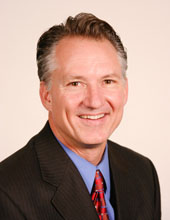Reverse Mortgages:
Financing the Golden Years
By Peter B. Murray
Until recently, seniors 62 years of age and older have not had the best options when it came to getting cash from their homes. Traditional home loans only offered the choice of either selling one’s house or borrowing against its equity.
With reverse mortgages becoming common business practice, seniors now have additional cash-flow alternatives. This type of loan allows mature borrowers to convert their home equity into tax-free income without leaving their current home or making mortgage payments – and they do not need an existing income to qualify.
How a Reverse Mortgage Works
Reverse mortgages are probably best understood when compared side-by-side with traditional home mortgages, otherwise known as "forward" mortgages. The following table shows the differences between the two:
| FORWARD MORTGAGE | REVERSE MORTGAGE |
| Uses income to pay debt | Uses home equity to get cash or credit |
| Monthly mortgage payments | No payments; debt is due when the borrower(s) pass away or relocate. |
| Falling debt, rising equity | Rising debt, falling equity |
Both loans incur debt against your home, and both affect equity, but they do so in different ways. Traditional home mortgages require making monthly payments to a lender. With a reverse mortgage, payments are made to you.
What a Reverse Mortgage Involves
Here are some important points to know when considering a reverse mortgage:
- Eligibility: To qualify for a reverse mortgage, you must be at least 62 years of age. All owners who are on the title deed must meet this age requirement. You must also have paid off all, or most, of your home mortgage. Lastly, the home in which you reside must remain your principal place of residence.
- Mandatory Counsel: In order to ensure that homeowners are fully aware of the financial ramifications of obtaining a reverse mortgage, you must undergo counseling with an unbiased third party before completing a loan. HUD and AARP oversee a network of counselors who can provide this service, which should be offered for either a nominal fee or at no charge.
- Tax-Free Income: One of the advantages of a reverse mortgage is that the money you receive will not be taxed. The amount you’ll obtain depends on several factors including the plan you select, the type of cash advances you choose, your age, and the value of your home. Typically, the older you are the larger the loan, as you will have more equity in the house.
- Cost: The cost of a reverse mortgage varies considerably from one type to the next. However, you can typically use the money you receive to offset the loan fees. The costs will be added to the loan balance and must be repaid with interest once the loan terminates.
- Repayment: Reverse mortgages do not require any payment as long as the borrower(s) remain in the home. Should the borrower(s) pass away, sell the home, or permanently relocate, then the loan would be due in full, along with interest and additional costs. If two borrowers are on the loan and one dies, the loan would not be due since one of them still occupies the home.
Home Equity Conversion Mortgage -
The Federally Insured Loan
The most common type of reverse mortgage is the Home Equity Conversion Mortgage, otherwise known as a HECM mortgage. This is the only reverse mortgage program that’s federally insured and backed by the U.S. Department of Housing and Urban Development (HUD). This type of reverse mortgage is popular for a few reasons:
- Ability to choose your own interest rate: You can select one that changes annually or one that changes every month.
- You have several payment options: You may receive monthly loan advances for a fixed term or for as long as you live in the home. You may also choose to receive a line of credit or combine monthly loan advances with a line of credit.
- The loan can be used for any purpose: With a HECM, you don't have to designate the loan to a specific use; you can apply the funds to anything you choose.
- Protection: This is one of the most attractive features of a HECM. This plan protects you by guaranteeing continued loan advances even if your lender defaults.
Sell or Stay?
The main reason people choose a reverse mortgage is to gain financial independence and maintain an adequate standard of living without leaving their current home. The best way to decide if a reverse mortgage is right for you is to compare it to the other option of selling your house. To do this, ask yourself these three questions:
- How much cash can I get by selling my home?
- How much will it cost to buy or rent a new place?
- Is it worth my moving now, or do I prefer to do something else with the money?
Perhaps you'll confirm what you knew all along, where you now live is the best place to be.
Peter B. Murray is affiliated with Dove Mortgage, a Licensed Broker in California. Contact Pete at 800-707-3683.
